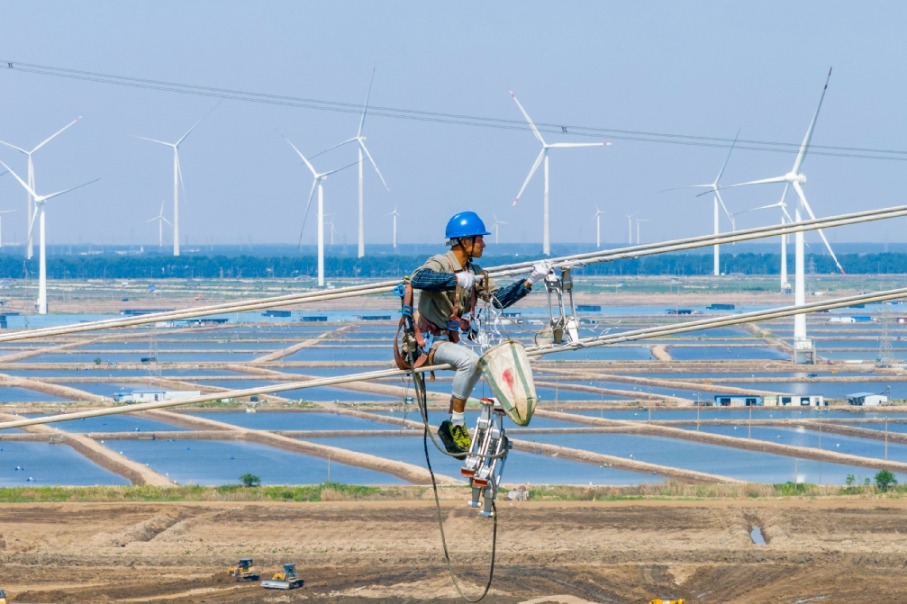Outbound investors taking fewer risks

As China's outbound investment has become less risky, the government will continue to encourage legal overseas investments, especially in projects tied to the Belt and Road Initiative, and will help with the development of domestic industries, a senior commerce official said on July 31.
Qian Keming, vice-minister of commerce, said irrational outbound investment was effectively curbed in the first half of the year, as the country's outbound direct investment dropped by 42.9 percent year-on-year to 331.1 billion yuan ($49.2 billion; 41.7 billion euros; £37.3 billion).
The changes came as the government increased scrutiny on overseas investment and reined in speculative deals by Chinese companies in sectors such as property, sports and entertainment.
"We have tightened the review of the authenticity and regulation compliance on the overseas investment, hoping to guide more investment into the real economy and to reduce investment in sectors such as real estate, hotels, entertainment and sports," Qian said at a news conference.
China's ODI in countries and regions related to the Belt and Road Initiative slid by 3.6 percent year-on-year in the first half of the year, far less than the overall decline, Qian said.
The stricter scrutiny on overseas investment also came as China's top leadership pledged to prevent financial risks, especially against the backdrop of the decline of the country's foreign exchange reserves and the rise of capital outflows.
Long Guoqiang, deputy head of the State Council's Development Research Center, says it is necessary for the government to properly manage and regulate cross-border investment to avoid massive fluctuations of cross-border capital flow.
"Many financial crises in the past were caused by big fluctuations of cross-border capital flows. As a big country, it is important for China to maintain a stable financial market and to contain risks," Long says.
Analysts say China's outbound investment activities will pick up for the remainder of the year, and projects that are in line with the country's overall economic policies will continue to be supported by the government.
Following a challenging first quarter, Chinese investors have returned to the deal table, and the country became the second-most acquisitive cross-border nation by value in the second quarter, with 94 deals worth $35.9 billion, according to a report by law firm Baker & McKenzie.
"As China's Belt and Road Initiative further progresses, we expect to see a rise in crossborder M&A activities led by Chinese companies in the related regions and countries," says Tracy Wut, an M&A partner at Baker & McKenzie.
"Industrials, consumer, services and technology sectors will most likely be the focus of Chinese investors, which in part reflects China's ongoing economic transformation to a consumer-driven and service-oriented nation."
lixiang@chinadaily.com.cn
(China Daily European Weekly 08/04/2017 page27)
Today's Top News
- Xi calls for upholding of ethnic unity
- Abuse of 'security' stifles innovation, collaboration
- Beijing warns countries against signing trade deals with US that hurt Chinese interests
- AI shouldn't undermine humanity's progress
- Xi urges villagers in Xizang to uphold ethnic solidarity
- Digital tax sparks breakdown in US-Canada trade talks






























